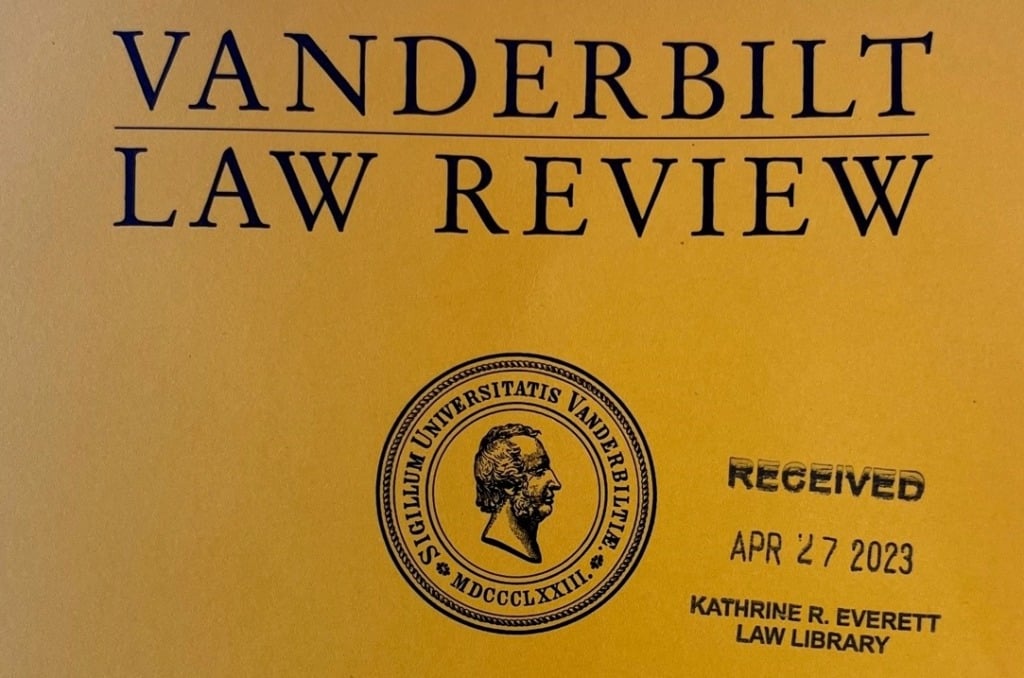Thoughts on the Petitioner’s Brief in Great Lakes
In a prior post, I surveyed the facts, procedural history, and potential significance of Great Lakes Insurance SE v. Raiders Retreat Realty Co., LLC, an upcoming Supreme Court case about the enforceability of choice-of-law clauses in maritime insurance contracts. In this post, I offer some thoughts on the brief filed by the petitioner, Great Lakes Insurance…
Continue ReadingSummer Schedule
TLB is shifting over to its summer publishing schedule. Posts will appear three days a week (as opposed to the usual four) for the remainder of the summer. Happy Fourth of July!
Continue ReadingSome Thoughts on Great Lakes Insurance SE v. Raiders Retreat Realty Co., LLC
The U.S. Supreme Court will hear oral arguments in Great Lakes Insurance SE, Petitioner v. Raiders Retreat Realty Co., LLC during the 2023 Term. This case has the potential to change the way that federal courts evaluate the enforceability of choice-of-law clauses. Over the past few decades, these provisions have become ubiquitous. One study found…
Continue ReadingWaiving Choice of Law
When I teach Conflict of Laws, I tell my students that they must always perform a choice-of-law analysis when there is a conflict between the laws of two jurisdictions. This is sound advice for doing well on the final exam. It is not, however, strictly true. In fact, litigants waive this issue all the time….
Continue ReadingMicrosoft’s Dispute Resolution Provisions Are a Mess
The Microsoft Corporation (“Microsoft”) and its foreign subsidiaries buy goods and services from companies all around the world. To streamline the contracting process, Microsoft has drafted a purchase order that contains standard terms and conditions. This purchase order – viewable here – is used by Microsoft and its subsidiaries in 109 different countries. This agreement…
Continue ReadingAre State Courts Biased Against Foreign Forum Selection Clauses? A Look at the Data.
In a prior post, I discussed some data on the practice of state and federal courts in the United States relating to the enforcement of forum selection clauses. This dataset also provides a useful opportunity to determine whether state courts are more likely to enforce a clause selecting another U.S. court than they are to…
Continue ReadingSupreme Court Decides Twitter and Google Cases
The Supreme Court issued opinions this morning in Twitter, Inc. v. Taamneh and Golzalez v. Google LLC. It held that the plaintiffs’ allegations that these social media companies had aided and abetted ISIS in terrorist attacks abroad failed to state a claim under the Justice Against Sponsors of Terrorism Act. More coverage soon on TLB.
Continue ReadingData on the Enforcement of Forum Selection Clauses
The United States legal system is immensely complex. There are state courts and federal courts, state statutes and federal statutes, state common law and federal common law. When I imagine a foreign lawyer trying to explain this system to a foreign client, my heart fills with pity. This feeling of pity is compounded when I…
Continue ReadingNew Scholarship on the Hague Service Convention
Thomas G. Vanderbeek recently published a note in the Vanderbilt Law Review that considers whether and to what extent parties should be permitted to “contract around” the Hague Service Convention (HSC). The conventional wisdom holds that the best way to avoid the HSC is to appoint a local agent to receive service of process. Once…
Continue ReadingLitigating Expropriation Claims in U.S. Courts
Foreign sovereigns generally enjoy sovereign immunity in the United States by operation of the Foreign Sovereign Immunities Act (FSIA). The FSIA specifically provides, however, that a foreign sovereign shall not be immune in any case in which “rights in property taken in violation of international law are in issue.” On its face, this expropriation exception…
Continue Reading




